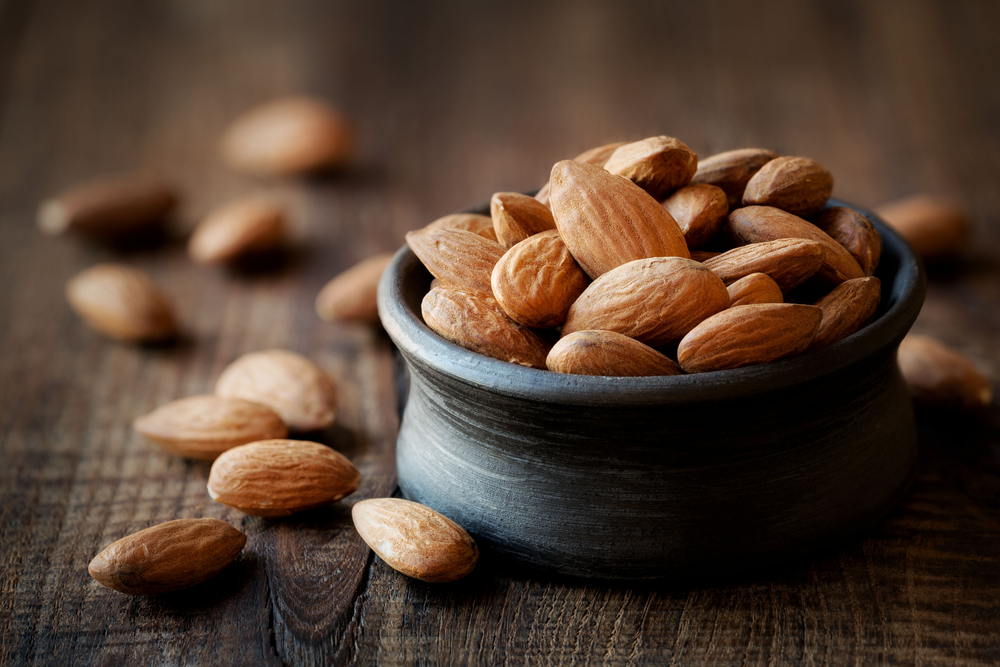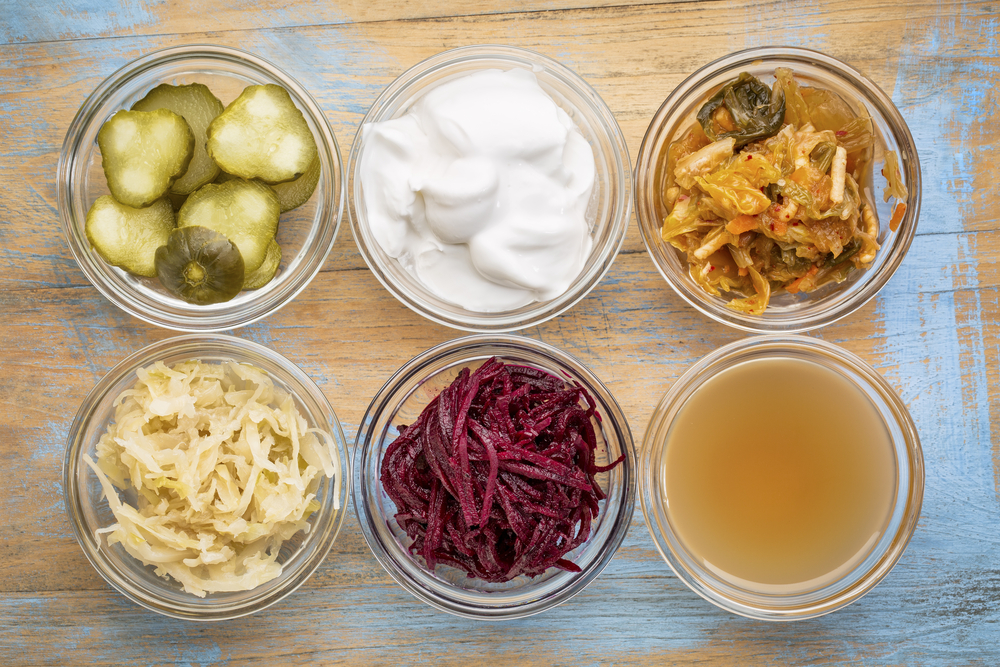Eating almonds could help support your digestive health

Looking for a quick and easy way to increase your fibre intake and boost your gut health? Nibbing on almonds throughout the day could provide an answer according to a recent study carried out at Kings College, London[i].
For the study researchers recruited 87 healthy adults who were already eating less than the recommended amount of dietary fibre and snacking on typical unhealthy snacks (e.g. chocolate and crisps). Participants were split into three groups: one changed their snacks to 56g of whole almonds a day, another to 56g of ground almonds, and the control group ate energy-matched muffins. The trial lasted four weeks.
The results showed that butyrate, a short chain fatty acid known to promote good gut health, was significantly higher amongst the almond eaters compared to those who consumed the muffins.
“Butyrate is the main source of fuel for the cells lining the gut. When these cells function well they signal to the gut to absorb certain nutrients and help ensure the gut wall is strong,” says Alice Creedon a researcher at the department of nutritional sciences at Kings College London.
Shorts bursts of vigorous activity found to support heart health

Good news for people who find it hard to fit exercise into busy lives. Short bouts of vigorous physical activity can have significant benefits for cardiovascular health according to a recent study carried out at Cambridge and Leicester Universities[ii].
For the study around 88,000 middle aged adults wore fitness trackers to measure how much vigorous activity such as running and strenuous cycling they did alongside moderate exercise such as walking. The data was then used to compare the number of heart attacks, strokes and cases of heart disease they experienced during the next seven years.
The results showed that vigorous exercise is better at protecting the heart than taking part in longer, more relaxed activities. This means that doing a brisk, daily seven-minute walk or fast jog lowers the risk of heart disease more than a daily 14-minute stroll despite taking half the time.
Running, singles tennis, walking uphill, cycling at more than 10 miles an hour or up a steep hill, fast swimming, HIIT classes and fast dancing such as salsa, quickstep, jive, and Charleston all count as vigorous exercise.
Eating fermented foods can help lower stress levels

Study after study shows the importance of diet on overall health and now research from APC Microbiome Ireland[iii] suggests that following a diet high in prebiotic and fermented foods such as kefir and kombucha may help lower perceived stress levels and improve sleep quality. Perceived stress levels are defined as the feelings or thoughts that someone has about how much stress they are under at a particular point in time or time-period. This diet is known as a ‘psychobiotic’ diet.
For the study scientists from University College Cork in Ireland recruited 45 adults and divided them into two groups. One group followed the psychobiotic diet, designed specifically to invigorate a person’s gut bacteria, known as the microbiome. It included two or three servings a day of fermented foods, such as sauerkraut or kimchi. The other half (the control group) received general dietary advice, based on the healthy eating food pyramid.
The psychobiotic diet also included up to eight servings a day of fruits and vegetables high in prebiotic fibres (such as onions, leeks, cabbage, apples, bananas, and oats). In addition, it included up to eight portions of grains a day and four servings of legumes per week. Participants kept a food diary and filled in a food frequency questionnaire.
After four weeks those on the psychobiotic diet reported feeling less stressed compared with those who followed the control diet. Although both groups reported better sleep quality, greater improvements were seen in those who followed the psychobiotic diet.
[i] The American Journal of Clinical Nutrition, 2022; DOI: 10.1093/ajcn/nqac265
[ii] European Heart Journal, ehac572, https://doi.org/10.1093/eurheartj/ehac572
[iii] Mol Psychiatry (2022). https://doi.org/10.1038/s41380-022-01817-y














Add comment